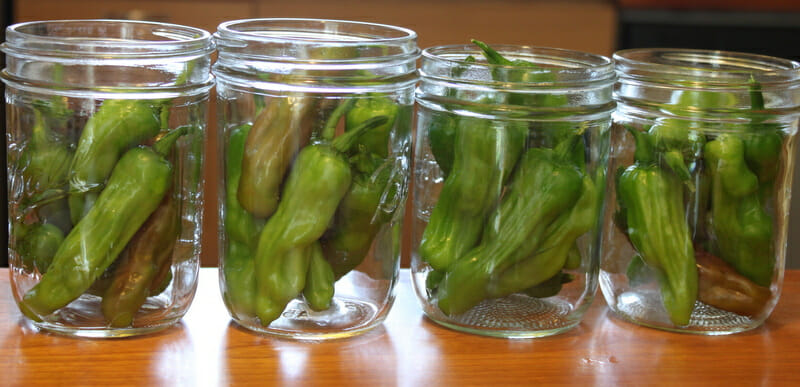|
Listen To The Article
|
There are plenty of reasons why people prefer one food preservation method over. But individual choices aside, here are some compelling arguments why canning is better than freezing and other methods, followed by a few notable exceptions.
1. Flexible storage space.
When you freeze your harvest, you are essentially using a big box to store your food. And when the box is full, it’s full. The sides won’t stretch and you can’t—or at least shouldn’t—sit on the top and squeeze it shut like an overfull suitcase. When your food is canned, however, you can almost always find a space to store a few more jars … and then a few more. When the pantry is full, there’s probably room for a row of jelly jars behind the cereal boxes or in the cabinet over top of the refrigerator. And when there’s no more room in the kitchen, jars can be tucked into a box under the bed in the guest room or even on temporary shelves behind a living room chair.
2. Storage without power.
Canning food is an obvious first choice for people living off-grid. While freezers are do-able off-grid, the cost and hassle is often higher and space is therefore at a premium. Even homes which are hooked to the grid know that it’s not 100 percent certain all the time. Outages due to storms or accidents can happen anywhere and anytime. Although full chest freezers can maintain integrity without power for many hours, outages are still cause for concern. When a homestead harvest is preserved in jars, there’s no worry about losing food when the lights go out. And either way, buying and running a freezer costs money — and pantry shelves don’t.
3. Ease of use.
We’ve all been there, realizing at the last minute that we forgot to take a crucial ingredient out of the freezer in time for it to thaw. Or remembering to retrieve the item and finding ourselves pawing through dozens of packages of what we don’t want to find the one thing we need.
Be Prepared. Get The ULTIMATE Food Protection Plan
Rehydrating dried foods takes some time and effort, too. And even when food comes whole from the root cellar, it still usually needs to be peeled, trimmed and seeded. When food is canned, none of that is an issue. Grab a jar, pop the top, and done.
4. Better quality and taste.
Certain canned foods are superior to their frozen counterparts. Many people prefer the taste and texture of canned green beans to any other. Others are swept off their feet by the intense smell of canned meats. And some homemade foods—such as potatoes, chutney, ketchup or jam—just do not freeze with results that satisfy everyone. Dehydrated vegetables often lack palatability compared to canned ones. For those times when canning yields the best results, it’s the only way to go.
5. Less waste.
Many people use zip-top freezer bags to freeze foods. Bags are often my go-to because they use less space than freezer containers. I wash mine out and reuse them, but the zip-tops wear out quickly. Canning jars last for years and can be reused dozens of times.
6. Processed without electricity.
Canning is not the only option when it comes to off-grid processing, but it is easily done on a gas burner. Depending upon the climate where you live, creating dried foods can be limited without an electric dehydrator.
Portable solar generator provides back up power during any crisis. [2]
7. Keeps well.
Technically, home-canned goods should be consumed within a year. But that can be fudged a little, or a lot, depending upon how picky you are. One drawback for root-cellar storage is that their useable lifespan is shorter than other methods. Frozen and dehydrated foods can deteriorate quickly, too. But food in jars has a good shelf life.
It is true that certain foods yield a better result when preserved in a way other than canning. Broccoli and cauliflower are not considered can-able. Bread, cake and cheese are not safe for canning. Neither are pureed foods such as squash or pesto. Foods such as greens and corn can be canned, but they are so labor- and time-intensive that many folks opt for freezing. Firm berries can nicely but yield a different end-result than freezing or drying, so the ideal way to preserve a bountiful berry harvest would ideally use some of each method.
Overall, canning is a great option for preserving the harvest. It can be done without electricity, yields high-quality and long-lasting results, and minimizes material waste.
Do you agree or disagree? Share your thoughts in the section below:
